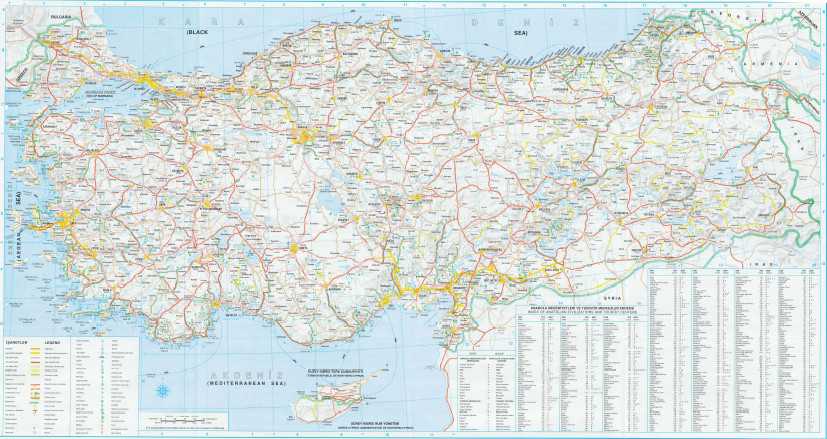After all the images in the media of hundreds of thousands of Syrians fleeing their country and looking for food and protection in Turkey, I guess most people, here and abroad, think that trying to cope with this massive influx of foreigners is Turkey’s main problem in the field of asylum and migration.
It is definitely the biggest logistical and financial challenge Ankara is facing at the moment. However, in terms of handling foreigners in need who have come to Turkey (refugees, asylum-seekers) in an acceptable way, based on international standards, the Syrians are not the most problematic case. That is because almost all of them do not want to stay here. They want to return to Syria as soon as possible, and that is the reason Turkey considers them “temporary guests.” Again, taking care of them is a huge thing, and for good reason Turkey has been praised for all the efforts it has undertaken to provide its Syrian guests with decent shelter and professional assistance. However, both the government and the Syrians know this situation will come to an end one day.
That does not apply to the tens of thousands of asylum seekers from Iran, Iraq, Afghanistan and Somalia who have fled to Turkey in the last decade. They cannot go back out of fear of prosecution or torture. Until last week, the way in which Turkey has dealt with all those forced migrants was repeatedly criticized by the EU, the UN and human rights organizations. For historical reasons, Turkey only legally accepts European asylum-seekers as “refugees” who can apply for a permanent residence permit. Therefore, none of the Asians or Africans is officially allowed to stay here forever. Some manage to get resettled by the UN in Canada or the US, but most are trapped in Turkey: They can’t go back home but Turkey does not have a policy to integrate them. The result is thousands of desperate foreigners, gathered at several places all over Turkey, who have no place to go and no prospect of getting out of their misery.
Last week, finally, Parliament adopted a law on foreigners and international protection that replaces all previous regulations and should deal with the current problematic cases and prevent new ones in the future. The step was welcomed by the EU and domestic specialists as a move in the right direction for several reasons: It should establish a standardized practice with shorter procedures all around the country; the new system is run by civilian authorities and no longer by the local police or gendarmerie; it introduces new forms of temporary protection and offers better conditions (housing, possibility to work) for all asylum-seekers; it refers explicitly to vulnerable groups entitled to special status, such as victims of human trafficking and unaccompanied minors.
Unfortunately, the new law preserves the geographical limitation and keeps making a difference between Europeans and non-Europeans; even if the latter will be better treated in the future and more of them are able to get a newly defined status, they are still expected to leave the country in the long term because the new law does not present them with an integration or naturalization option. Asylum-seekers from countries to the east and south will definitely be better off with the new law. However, they still cannot apply for permanent status. Especially for Afghans it remains to be seen whether or not their often hopeless situation will fundamentally change with the new law: Unlike Iranians, only a few countries are willing to accept them into the framework of a resettlement program. They may be stuck in Turkey forever.
It will only be possible to implement the new law in a proper way when those who are going to work for the new directorate at the Interior Ministry are trained in human rights and refugee law. The EU has already offered to help Turkey in its quest to reshape its migration and asylum management and has indicated that progress in this field will be beneficial in another pursuit: visa liberalization for Turkish citizens traveling to the EU.


Leave a Reply